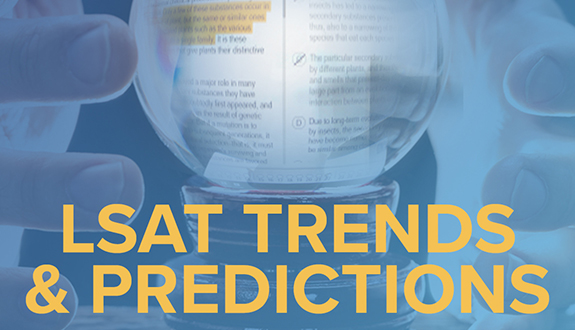Blueprint LSAT Blog: Advice on Logical Reasoning

An Introduction to the LSAT Logical Reasoning Section
Get a full breakdown of the LSAT Logical Reasoning Section in our complete guide.
READ MORE
Is Logical Reasoning Becoming Harder?
Are new Logical Reasoning coming to the LSAT after Logic Games are removed? We're debunking the LSAT rumor going around Reddit.
READ MORE
Increase Your LSAT Score 5 Points in 5 Minutes With Logical Force
Master this one concept to gain some easy points on your next practice exam!
READ MORE
What to Know About Sufficient and Necessary Assumption LSAT Questions
Sufficient and Necessary Assumption questions are tough. Don’t get discouraged. These question types are tricky, and also appear frequently in the LSAT Logical Reasoning section, so it’s important to have a firm handle on what each type of assumption means. But with the help of our LSAT Prep, there is no need to stress. We
READ MORE
Can You Have Scratch Paper When Taking the LSAT?
Sitting for the Law School Admission Test (LSAT) can be quite daunting. With months of rigorous LSAT preparation and stress management, the LSAT testing day is typically one filled with anxiety and uncertainty. On such a tense day you don’t want to be left panic-stricken, wondering whether you are following all the test rules. It
READ MORE
June 2022 LSAT Exam Predictions
Semi-interesting news for all of you June LSAT testers, a third main test day will NOT be added for this administration. The main testing days will be Friday, June 10th and Saturday, June 11th. Accommodated and international LSAT testing will be on Tuesday, June 14th. Great, now that we’ve got the logistical information sorted and
READ MORE
Logical Reasoning Examples: Logic Fails of the Week
Out of the three sections of the LSAT, the Logical Reasoning section is the one whose skills and strategies you’ll use every day, whether or not you become a lawyer. The LR section asks you to analyze, criticize, and breakdown different arguments. Unlike something as impractical as Calculus 2, you will likely encounter an argument
READ MORE
Dealing with Super Abstract Answer Choices on the LSAT
Here’s a non-exhaustive list of correct answers on recent Logical Reasoning questions: “two different states of affairs could each causally contribute to the same effect even though neither causally contributes to the other.” “showing that something that would be impossible if a particular thesis were correct is actually true” “inferring that one specific response to
READ MORESearch the Blog

Free LSAT Practice Account
Sign up for a free Blueprint LSAT account and get access to a free trial of the Self-Paced Course and a free practice LSAT with a detailed score report, mind-blowing analytics, and explanatory videos.
Learn More
Popular Posts
-
logic games Game Over: LSAC Says Farewell to Logic Games
-
General LSAT Advice How to Get a 180 on the LSAT
-
Entertainment Revisiting Elle's LSAT Journey from Legally Blonde





